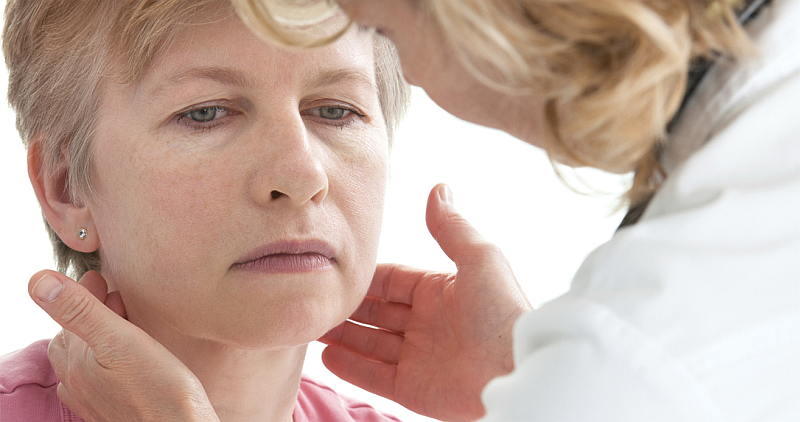
In general, the diagnosis of a thyroid disorder takes time. Often a varying degree of symptoms. Some people do not even experience recognisable symptoms. This often leads to delay in the recognition of a thyroid problem being present before a specific diagnosis can be made. It is also important to understand that symptoms of thyroid problems are often common to other illnesses, which can result in additional time for diagnosis. If your doctor suspects that you are suffering from a thyroid disorder, he or she will recommend tests to determine the cause of your problems.
Physical and History
The first step in the diagnosis process is a physical examination coupled with your family history of thyroid problems. This often requires the doctor to spend time examining your neck to see if there are noticeable nodules on your thyroid. Depending on the outcome of this step, your doctor will often recommend other tests for confirmation.
Blood Testing
Thyroid disorders are marked by high or low levels of the thyroid hormones. Blood tests that measure thyroid stimulating hormone levels in the blood also help with diagnosis. The level of TSH in the blood directs the thyroid to produce the appropriate levels of thyroid hormone, and if these levels are not normal, it shows the potential for a thyroid disorder. After this blood test, your doctor may also include further blood tests to check the levels of thyroid hormones in your blood.
Iodine Uptake Testing
Another test used for diagnosing thyroid disorders is a radioactive iodine uptake test. This test requires you to ingest a small amount of radioactive iodine to see how your thyroid responds to radioiodine. Iodine is used by the thyroid to produce hormones, and this test will allow the doctor to determine whether your thyroid is currently producing too little or too much of the hormones. Once you have ingested the radioiodine, the doctor uses a probe to determine whether the thyroid is making too much or too little of the thyroid hormones.
Ultrasound
An ultrasound may be performed if there are nodules present on your thyroid. This test will allow the doctor to determine the current size of the nodules, and what type may be present. Thyroid ultrasounds are often repeated to monitor the size of the nodules, which is an important factor in understanding whether your current treatment is working properly.
Thyroid Scan
Thyroid nodules may be cancerous, so your doctor may choose to administer a thyroid scan that uses radioiodine to determine the type of nodules present. This scan uses a camera to create images of the thyroid glands, and how they react to the radioiodine. This scan shows three different types of nodules that are visible due to the levels of thyroid hormones present, including:
- Hot Nodules – These nodules overproduce thyroid hormones
- Warm Nodules – These nodules produce hormones at normal levels
- Cold Nodules – These nodules do not produce thyroid hormones
Biopsy
Another test that is beneficial in determining whether thyroid nodules are cancerous is a fine needle biopsy. This test uses a needle to extract cells from the thyroid gland to determine whether the cells are normal or abnormal. Cells that appear abnormal can be indicative of cancer, which makes this a great testing option to ensure that treatment is started as soon as possible.
Thyroid Surgery
Ultimately the surgical removal of a thyroid lump with submission of the specimen for diagnosis by histopathology remains the gold standard for the diagnosis of a thyroid lump.
While all of these tests are commonly used for detecting and diagnosing thyroid problems, your doctor may not require you to take every one. If a specific diagnosis is determined using one or more of the suggested tests, your doctor will move on to determining the proper treatments for your condition.
If you have questions about the thyroid and parathyroid glands make an appointment to see a thyroid surgeon.
